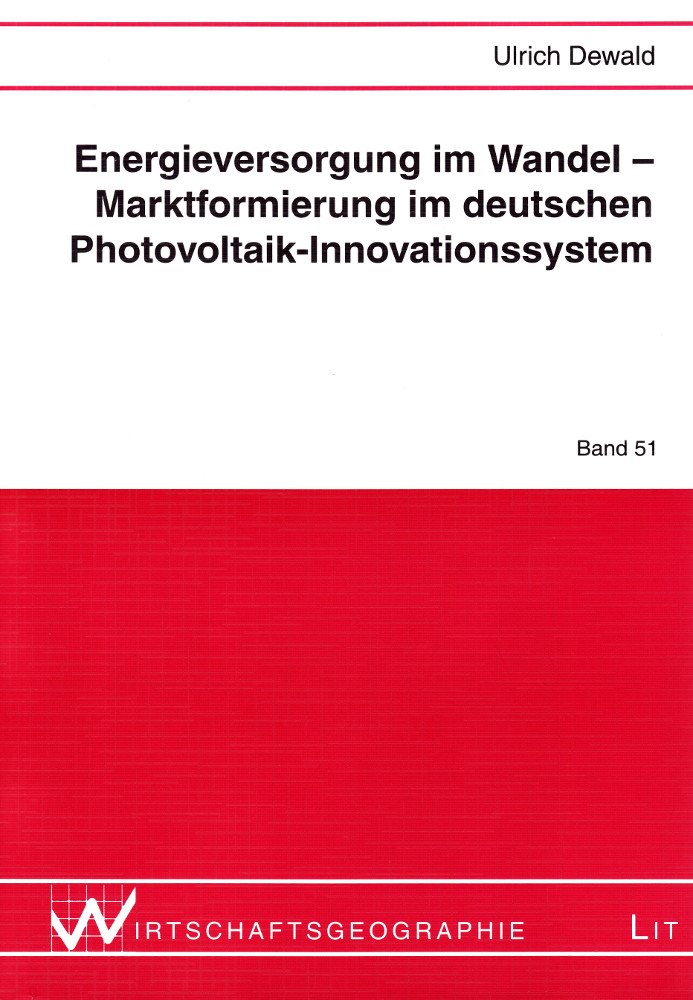Publication on market formation in innovation systems with the example of photovoltaic technology [31.07.2012]
This monograph, published by LIT Verlag in the series "economic geography", is the dissertation of Ulrich Dewald. It is the result of his work at the chair of economic geography, RWTH Aachen, and was supervised by Prof. Dr. Martina Fromhold-Eisebith and Prof. Dr. Bernhard Truffer.
Within systemic approaches on innovation dynamics, often the role of market formation is subordinated under processes of generation of new knowledge and technologies. Starting from this observation, Ulrich Dewald develops a more explicit and systematic view on market formation processes within the analysis of innovation systems' formation dynamics. As a second conceptual challenge the relevance of diverse spatial scales for diverse processes in innovation systems is addressed. The "technological systems of innovation approach" is adequate for such a perspective: contrary to spatial innovation systems approaches the role of spatial scales is not set apriori. The role of space is defined by the interrelations and patterns of activities. This approach can build on earlier elaborations on technological systems, which implicitly involved a relational conceptualization of space.
This is relevant regarding technology policies. With the example of photovoltaic technology in Germany, the design of policies, the formation of the industry and market formation are investigated as main constitutive processes of innovation systems. It is shown, that early proto-markets where based locally. These preceded the later national renewable energy sources act (EEG), where main mechanisms and experiences from these local projects were included. Thus, spatial proximity is seen as important especially in early stages of innovation systems’ formation dynamics. Multiple barriers between technology providers and users request dense and direct forms of interaction. Here, especially the role of intermediaries is investigated. So-called local or regional solar initiatives are analyzed regarding their impact on different dimensions of market formation.
Not at least it is shown, that the development path of photovoltaic technology in Germany can only be understood by the interplay of knowledge development, design of adequate policies but particularly the role of users and intermediary organizations.
Why is this approach meaningful regarding policy designs? Often EEG-type policies, which have been developed gradually in a bottom-up way in Germany, have been installed in a top-down way in numerous other countries. It can be doubted that national instruments are successful if respective actors and institutions at the local level are lacking.
Bibliographic data:
Dewald, U.
Energieversorgung im Wandel - Marktformierung im deutschen Photovoltaik-Innovationssystem. Berlin: LIT 2012
mehr zum Buch (German)


